![]()
Struggle with the Pharisees
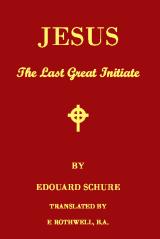
“In the temple, instead of supreme science and initiation, he found materialistic and agnostic ignorance, playing on religion as on a power-giving instrument, in other words, priestly imposture. In schools and synagogues, instead of the bread of life, and the dew from heaven falling upon men's hearts, he saw an interested morality under the veneer of formal worship, i.e. hypocrisy. Far above, enthroned in a nimbus of glory, sat almighty Caesar, the apotheosis of evil and the deification of matter, the sole god of the then world, only possible master of the Sadducees and Pharisees, whether they wished it so or not. In adopting the idea from Persian esoterism as did the prophets, was Jesus wrong in naming this reign the dominion of Satan or Ahrimanes, i.e. the rule of matter over spirit, in place of which he wished to substitute that of spirit over matter? Like all great reformers, he attacked not men, who as exceptions, might be excellent, but doctrines and institutions which mould the majority of mankind. The challenge must be delivered, and war declared against the existing powers.”
JESUS : THE LAST GREAT INITIATE
Chapter 5
Struggle with the Pharisees
This Galilean springtime, during which the dawn of the Kingdom of
Heaven seemed to rise upon the attentive multitudes lasted two years.
Now, however, the sky darkened, sinister flashes appeared,
forerunners of catastrophe. The storm burst upon the small family at
Galilee like one of those tempests which sweep the lake of
Gennesareth, and in their wild fury engulf the fishermen's frail
barques.
Jesus was in no way surprised at the consternation and terror of his
disciples, he fully expected it. It was impossible that his preaching
and increasing popularity should not stir the religious authorities
and himself. On the contrary, from this conflict alone could light
flash forth.
At the time of Jesus the Pharisees formed a compact body of six
thousand men. Their name Perishin means "separate"
or "distinguished." Of a lofty and often heroic though narrow and
haughty patriotism, they represented the party of national
restoration; their existence only dated from the Maccabees. They
acknowledged both an oral and a written tradition. They believed in
angels, a future life and resurrection, but the glimpses of
esoterism which came to them from Persia they buried beneath the
darkness of a gross material interpretation. Strict observers of the
law, though quite opposed to the spirit of the prophets who placed
religion in the love of God and of men, they made piety consist of
rites and ceremonies, fasts and public penance.
On great occasions they were to be seen in the open streets, their
faces covered with soot, praying aloud with contrite mien, and
ostentatiously distributing alms. In contradistinction to all this
they lived in luxury, eagerly intriguing after authority and power.
None the less were the chiefs of the democratic party. They were
composed of families whose pretension it was to have exercised
priesthood by hereditary right ever since the time of David. Extreme
in their conservatism they rejected oral tradition, accepted nothing
but the letter of the law, and denied the existence of the soul and a
future life. They ridiculed alike the stormy practices of the
Pharisees and their extravagant beliefs. For them, religion consisted
entirely in sacerdotal ceremonies. Under the Seleucides they had
deprived the pontificate of power, as they were in complete accord
with the pagans, and were even imbued with Greek sophistry and
refined Epicurism. Under the Maccabees the Pharisees had been rejected
from the pontificate, though, under Herod and the Romans, they had
apparently regained this position. The Sadducees were stern and hard-
hearted as men, and lovers of good cheer as priests, possessed of one
faith, that of their own superiority, and of one idea, the
determination to maintain the power tradition had handed down to them.
In such a religion what could Jesus find, Jesus the initiate,
inheritor of the prophets, the Seer of Engaddi, seeking in social
order the image of the divine, in which justice reigns over life,
science over justice, and love and wisdom over all three?
In the temple, instead of supreme science and initiation, he
found materialistic and agnostic ignorance, playing on religion as on
a power-giving instrument, in other words, priestly imposture. In
schools and synagogues, instead of the bread of life, and the dew
from heaven falling upon men's hearts, he saw an interested morality
under the veneer of formal worship, i.e. hypocrisy. Far above,
enthroned in a nimbus of glory, sat almighty Caesar, the apotheosis
of evil and the deification of matter, the sole god of the then
world, only possible master of the Sadducees and Pharisees, whether
they wished it so or not. In adopting the idea from Persian esoterism
as did the prophets, was Jesus wrong in naming this reign the
dominion of Satan or Ahrimanes, i.e. the rule of matter over spirit,
in place of which he wished to substitute that of spirit over
matter? Like all great reformers, he attacked not men, who as
exceptions, might be excellent, but doctrines and institutions which
mould the majority of mankind. The challenge must be delivered, and
war declared against the existing powers.
The struggle began in the synagogues of Galilee and continued beneath
the porticoes of the temple at Jerusalem, to which Jesus made
lengthened visits, preaching and replying to his opponents. In this
as throughout his whole career, he acted with that mixture of
prudence and boldness, meditative reserve and impetuous action, which
characterised his wonderfully well-balanced nature. He did not take
the offensive against his opponents, but waited and replied to their
attack, which never tarried, for, from the very beginning of his
ministry, the Pharisees had been jealous of him by reason of his
popularity and his healing of the sick. They quickly suspected him to be
their most dangerous enemy. Accosting him with that mocking urbanity,
that cunning malevolence, veiled beneath a mask of hypocritical
gentleness, in which they were past-masters, in their role as learned
doctors and men of importance and authority, they asked what reasons
he had for having dealings with publicans and sinners? Why did his
disciples dare to pluck ears of corn on the Sabbath day? Such
conduct constituted a grave violation of their regulations. With a
magnanimous gentleness, Jesus replied in words at once tender and
courteous. He tried on them his gospel of love, spoke of the love of
God, who rejoices more over one repentant sinner than over many just
persons. He related to them the parables of the lost sheep and the
prodigal son. In embarrassed astonishment they held their peace.
Uniting again, they returned to the charge, reproaching him for
healing the sick on the Sabbath day. "Hypocrites!" replied Jesus, a
flash of indignation illumining his eyes," do not you on the Sabbath
day remove the chain from your own oxen's neck and lead them away to
the watering trough? May not therefore the daughter of Abraham be
delivered this same day from the chains of Satan?”No longer knowing
what to reply, the Pharisees accused him of casting out the devils in
the name of Beelzebub. With quite as much wit as logical acumen,
Jesus replied that the devil does not cast himself out, adding that
sin against the Son of Man will be forgiven, but not sin against the
Holy Ghost, signifying thereby that he attached slight importance to
insults against himself personally, but that a denial of the Good and
the True, when once established, constitutes intellectual perversity,
the supreme vice and an irremediable evil. This was a declaration of
war. He was called Blasphemer! Agent of Beelzebub! Which accusations
he answered by the expression: Hypocrites! Generation of vipers!
From this time the struggle continually increased in bitterness.
Jesus gave evidence of a close incisive logic, his words lashed like
whips and pierced like arrows. He had changed tactics; instead of
defending himself, he attacked and replied to charges by other
charges more vigorous still, showing no pity for hypocrisy, the one
vice at the root of all others. ”Why transgress ye the law of God by
reason of your traditions? God recommended, Honour thy father and
thy mother: you dispense with honouring parents, if, as alternative,
money flows into the temple. With your lips you serve Isaiah, but your devotion is devoid of
heart.”
Jesus ever kept perfect control over himself, though the enthusiasm
and greatness of the struggle daily increased. The more he was
attacked, the more emphatically did he proclaim himself as the
Messiah. He began to utter threats against the temple, to foretell
the misfortunes that Israel would undergo, to appeal to the heathen,
and to say that the Lord would send other labourers into the
vineyard. Thereupon the Pharisees of Jerusalem became anxious. Seeing
they could neither impose silence on him nor find any effective
retort, they too changed tactics. Their idea now was to ensnare him,
so they sent deputations whose object it was to induce him to utter
heretical sayings which would warrant the Sanhedrim in laying hands
on him as a blasphemer, in the name of the law of Moses, or the Roman
governor in condemning him as a rebel. Hence the insidious question
concerning the woman taken in adultery, and the coin stamped with
Caesar's image. Ever penetrating the designs of his enemies, Jesus
with profound psychology and skillful strategy, disarmed them by his
replies. Finding it impossible to effect their object by these means,
the Pharisees attempted to intimidate him by annoying him at every
turn. Worked upon and excited by them, the majority of the people
began to turn away from Jesus when they saw that he was not restoring
the kingdom of Israel. Everywhere, even in the smallest of hamlets,
he met suspicious and wily countenances, spies, and treacherous
emissaries to track and dishearten him. Some came and said to
him, "Depart from here, for Herod (Antipas) is bent on killing thee.”
He replied proudly, "Go tell that fox; it cannot be that a prophet
dies out of Jerusalem!" Nevertheless, he was often obliged to cross
the sea of Tiberias and take refuge on the eastern bank in order to
escape these snares.
Nowhere was he now free from danger. Meanwhile John the Baptist was
put to death by order of Antipas in the fortress of Makerous. It is
said that Hannibal, on seeing the head of his brother Hasdrubal,
killed by the Romans, exclaimed: "Now I recognise the fate of
Carthage.” Jesus could recognise his own fate in the death of his
precursor. He had had no doubt of this ever since his vision at
Engaddi; had begun his work, knowing the inevitable end, and yet this
news, when brought by the sorrow-stricken disciples of the prophet of
the wilderness, struck Jesus as a death-warning. He exclaimed : "They
did not recognise him, but have done with him as they wished, thus
shall the Son of Man suffer at their hands.”
JESUS : THE LAST GREAT INITIATE
Chapter Five
Struggle with the Pharisees
Kessinger Publishing; Facsimile edition edition (March 1997)
Apokalypsis: The fulfillment of eschatological instruction by the Paraclete in the Age to Come promised by Jesus at the Last Supper
An apocalypse (Greek: apokalypsis meaning “an uncovering”) is in religious contexts knowledge or revelation, a disclosure of something hidden, “a vision of heavenly secrets that can make sense of earthly realities.” (Ehrman 2014, 59)
“An apocalypse (Ancient Greek: apokalypsis ... literally meaning "an uncovering") is a disclosure or revelation of great knowledge. In religious and occult concepts, an apocalypse usually discloses something very important that was hidden or provides what Bart Ehrman has termed, "A vision of heavenly secrets that can make sense of earthly realities". Historically, the term has a heavy religious connotation as commonly seen in the prophetic revelations of eschatology obtained through dreams or spiritual visions.” Wikipedia 2021-01-09
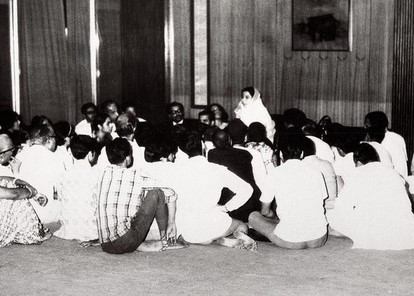
Total number of recorded talks 3058: Public Programs 1178, Pujas 651, and other (private conversations) 1249
“The Paraclete will come (15:26; 16:7, 8, 13) as Jesus has come into the world (5:43; 16:28; 18:37)... The Paraclete will take the things of Christ (the things that are mine, ek tou emou) and declare them (16:14-15). Bishop Fison describes the humility of the Spirit, 'The true Holy Spirit of God does not advertise Herself: She effaces Herself and advertises Jesus.' ...
It is by the outgoing activity of the Spirit that the divine life communicates itself in and to the creation. The Spirit is God-in-relations. The Paraclete is the divine self-expression which will be and abide with you, and be in you (14:16-17). The Spirit's work is described in terms of utterance: teach you, didasko (14:26), remind you, hypomimnesko (14:26), testify, martyro (15:26), prove wrong, elencho (16:8), guide into truth, hodego (16:13), speak, laleo (16:13, twice), declare, anangello (16:13, 14, 15). The johannine terms describe verbal actions which intend a response in others who will receive (lambano), see (theoreo), or know (ginosko) the Spirit. Such speech-terms link the Spirit with the divine Word. The Spirit's initiatives imply God's personal engagement with humanity. The Spirit comes to be with others; the teaching Spirit implies a community of learners; forgetful persons need a prompter to remind them; one testifies expecting heed to be paid; one speaks and declares in order to be heard. The articulate Spirit is the correlative of the listening, Spirit-informed community.
The final Paraclete passage closes with a threefold repetition of the verb she will declare (anangello), 16:13-15. The Spirit will declare the things that are to come (v.13), and she will declare what is Christ's (vv. 14, 15). The things of Christ are a message that must be heralded...
The intention of the Spirit of truth is the restoration of an alienated, deceived humanity... The teaching role of the Paraclete tends to be remembered as a major emphasis of the Farewell Discourses, yet only 14:26 says She will teach you all things. (Teaching is, however, implied when 16:13-15 says that the Spirit will guide you into all truth, and will speak and declare.) Franz Mussner remarks that the word used in 14:26, didaskein, "means literally 'teach, instruct,' but in John it nearly always means to reveal.” (Stevick 2011, 292-7)
The Holy Spirit as feminine: Early Christian testimonies and their interpretation,
Johannes van Oort, Radboud University, Nijmegen, The Netherlands
Department of Church History and Church Polity, Faculty of Theology, University of Pretoria, South Africa
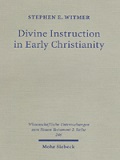
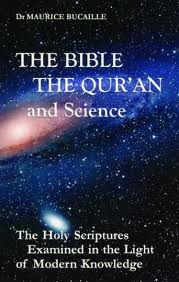
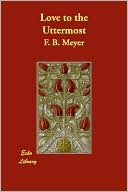
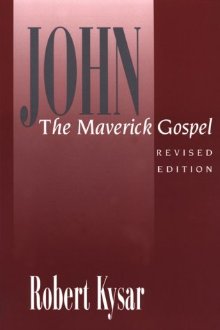
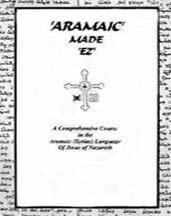

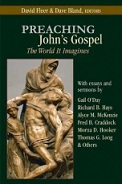
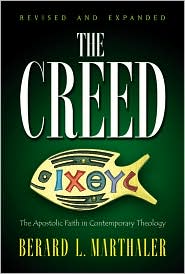
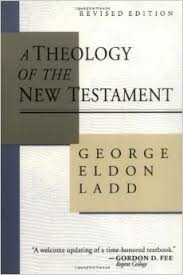
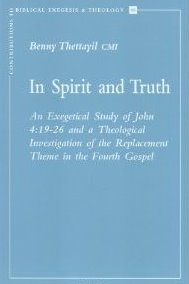

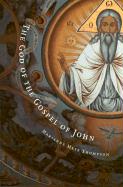
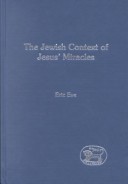
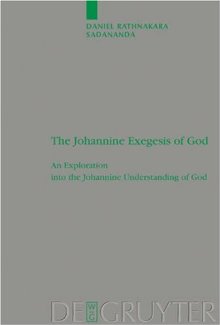

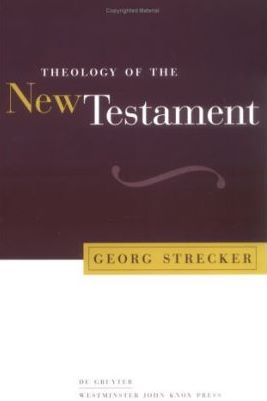

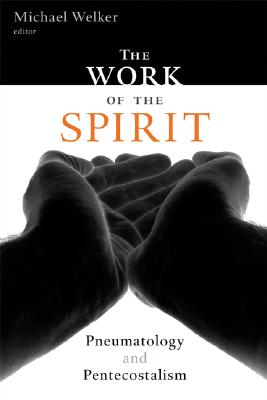
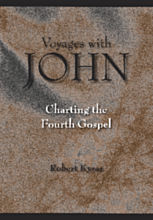
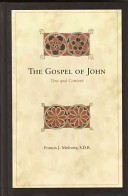
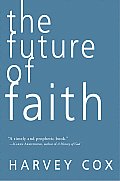
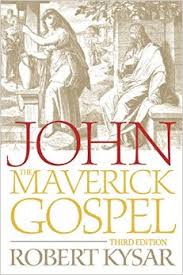
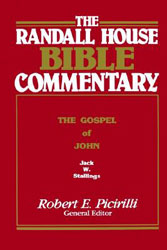
 “The teaching of the Paraclete, as the continuation of Jesus' teaching, must also be understood as the fulfillment of the promise of eschatological divine instruction.”
“The teaching of the Paraclete, as the continuation of Jesus' teaching, must also be understood as the fulfillment of the promise of eschatological divine instruction.”Stephen E. Witmer, Divine instruction in Early Christianity
“Jesus therefore predicts that God will later send a human being to Earth to take up the role defined by John .i.e. to be a prophet who hears God's words and repeats his message to man.”
M. Bucaille, The Bible, the Qur'n, and Science
“And when Jesus foreannounced another Comforter, He must have intended a Person as distinct and helpful as He had been.”
F. B. Meyer, Love to the Utmost
“The Paraclete has a twofold function: to communicate Christ to believers and, to put the world on trial.”
Robert Kysar, John The Meverick Gospel
“But She—the Spirit, the Paraclete...—will teach you everything.”
Danny Mahar, Aramaic Made EZ)
“Grammatical nonsense but evidence of the theological desire to defeminize the Divine.”
Lucy Reid, She Changes Everything
“The functions of the Paraclete spelled out in verses 13-15... are all acts of open and bold speaking in the highest degree.”
David Fleer, Preaching John's Gospel
“The reaction of the world to the Paraclete will be much the same as the world's reaction was to Jesus.”
Berard L. Marthaler, The Creed: The Apostolic Faith in Contemporary Theology
Bultmann calls the “coming of the Redeemer an 'eschatological event,' 'the turning-point of the ages.”
G. Ladd, A Theology of the New Testament
“The Paraclete equated with the Holy Spirit, is the only mediator of the word of the exalted Christ.”
Benny Thettayil, In Spirit and Truth
“The divine Paraclete, and no lessor agency, must show the world how wrong it was about him who was in the right.”
Daniel B. Stevick , Jesus and His Own: A Commentary on John 13-17
Stephen Smalley asserts that “The Spirit-Paraclete ... in John's Gospel is understood as personal, indeed, as a person.”
Marianne Thompson, The God of the Gospel of John
“The Messiah will come and the great age of salvation will dawn (for the pious).”
Eric Eve, The Jewish context of Jesus' Miracles
“The remembrance is to relive and re-enact the Christ event, to bring about new eschatological decision in time and space.”
Daniel Rathnakara Sadananda, The Johannine Exegesis of God
“The Spirit acts in such an international situation as the revealer of 'judgment' on the powers that rule the world.”
Michael Welker, God the Spirit
The Paraclete's “Appearance means that sin, righteousness, and judgment will be revealed.”
Georg Strecker, Theology of the New Testament
“While the Spirit-Paraclete is the true broker, the brokers they rely on are impostors.”
T. G. Brown, Spirit in the writings of John
“The pneumatological activity ... of the Paraclete ... may most helpfully be considered in terms of the salvific working of the hidden Spirit.”
Michael Welker, The work of the Spirit
“The pneuma is the peculiar power by which the word becomes the words of eternal life.”
Robert Kysar, Voyages with John
“The gift of peace, therefore, is intimately associated with the gift of the Spirit-Paraclete.”
Francis J. Moloney, The Gospel of John
“This utopian hope, even when modestly expressed, links Jesus and the prophets to a much wider history of human longing.”
Harvey Cox, The Future of Faith
“Because of the presence of the Paraclete in the life of the believer, the blessings of the end-times—the eschaton—are already present.”
Robert Kysar, John
“They are going, by the Holy Spirit's power, to be part of the greatest miracle of all, bringing men to salvation.”
R. Picirilli, The Randall House Bible Commentary
“The Kingdom of God stands as a comprehensive term for all that the messianic salvation included... is something to be sought here and now (Mt. 6:33) and to be received as children receive a gift (Mk. 10:15 = Lk. 18:16-17).”
G. Ladd, A Theology of the New Testament
Disclaimer: Our material may be copied, printed and distributed by referring to this site. This site also contains copyrighted material the use of which has not always been specifically authorized by the copyright owner. We are making such material available to our readers under the education and research provisions of "fair use" in an effort to advance freedom of inquiry for a better understanding of religious, spiritual and inter-faith issues. The material on this site is distributed without profit. If you wish to use copyrighted material for purposes other than “fair use” you must request permission from the copyright owner.